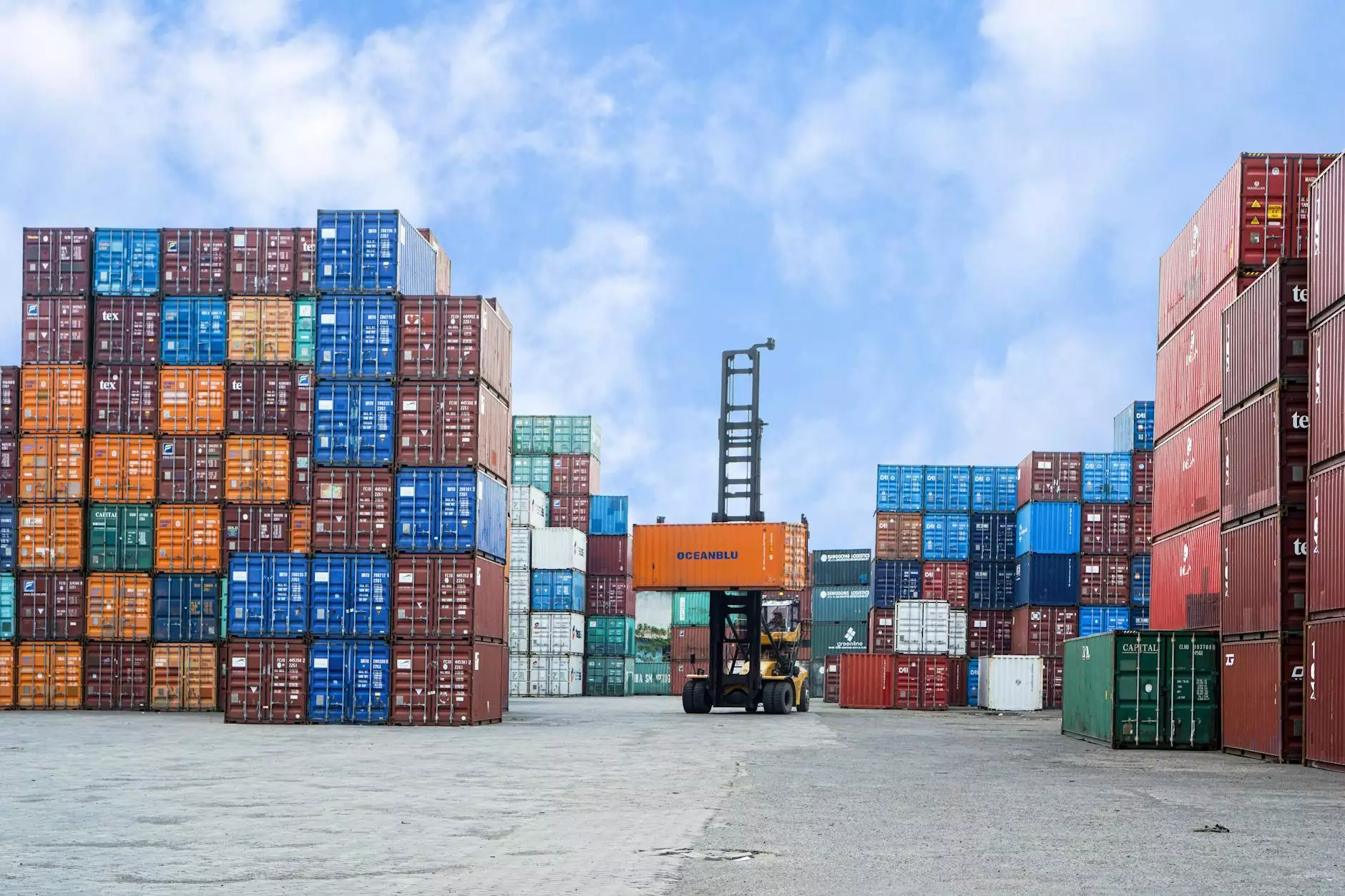Unlocking Business Success Through Expert Air Freight Cost Calculation and Logistics Optimization

In today’s rapidly evolving global economy, efficient logistics and transportation are pivotal for companies aiming to expand their reach, reduce operational costs, and enhance customer satisfaction. A critical component of this logistics chain is air freight, which offers unmatched speed and reliability for shipping high-value or time-sensitive goods. However, to maximize profitability and streamline operations, understanding air freight cost calculation is essential. This comprehensive guide explores the intricacies of global logistics, focusing on shipping centers, transportation networks, and airport facilities—the backbone of seamless business operations.
Understanding the Fundamentals of Air Freight
Air freight involves the transportation of goods by aircraft from one airport to another, facilitating rapid delivery across long distances. The advantages include speed, security, and reliable scheduling, making it indispensable for industries like electronics, pharmaceuticals, fashion, and perishable goods. Despite its benefits, the costs associated with air freight are complex, influenced by multiple factors that demand detailed comprehension for effective cost calculation.
The Significance of Accurate Air Freight Cost Calculation
Accurately determining the cost of air freight is crucial to maintain healthy profit margins and competitiveness. Incorrect calculations can result in unexpectedly high expenses, reduced profitability, or loss of customer trust. Air freight cost calculation involves analyzing various components, such as weight, dimensions, distance, fuel surcharges, security fees, and additional handling. Moreover, aligning these calculations with strategic logistics planning enhances overall operational efficiency.
Key Factors Influencing Air Freight Costs
A comprehensive understanding of each factor influencing air freight cost calculation enables businesses to optimize their shipping strategy effectively:
- Weight and Dimensions: The total weight and volume of the shipment determine the charged weight, with volumetric weight often assessed for larger, lighter cargo.
- Distance and Route: Longer routes and remote destinations incur higher costs; choosing efficient routes can lead to significant savings.
- Type of Cargo: Special cargo requiring special handling or refrigeration increases costs.
- Fuel Surcharges: Fluctuations in fuel prices directly impact air freight pricing.
- Security and Regulatory Fees: Compliance with international security standards entails fees that vary by destination and cargo specification.
- Handling and Packaging: Customized or fragile packaging adds to the overall expense.
- Carrier and Airport Charges: Different carriers and airports have varying fee structures based on facilities, capacity, and services offered.
Deciphering the Complexities of Air Freight Cost Calculation
Successfully performing air freight cost calculation requires breaking down these factors and applying specific formulas. The process typically involves calculating the *billable weight*, which is the higher of the actual weight or volumetric weight:
Volumetric Weight (kg) = (Length (cm) × Width (cm) × Height (cm)) / Dimensional FactorThe commonly used dimensional factor varies between 5000 and 6000, depending on the carrier's standards. Once the billable weight is established, it is multiplied by the applicable rate per kilogram or per pound provided by the carrier, which includes base rates, surcharges, and additional fees.
Effective Strategies to Optimize Air Freight Cost Calculation
While understanding cost factors is fundamental, applying strategic practices can lead to substantial savings and efficiencies:
- Consolidate Shipments: Combining smaller shipments reduces per-unit costs by maximizing cargo volume.
- Negotiate Contracts: Establishing long-term relationships with carriers can result in negotiated rates and preferred services.
- Leverage Technology: Utilize advanced transport management systems (TMS) and cost calculators to accurately estimate and compare shipping options.
- Optimize Packaging: Using lightweight and space-efficient packaging minimizes volumetric weight and reduces costs.
- Select Appropriate Routes and Carriers: Analyzing route options and carrier services ensures cost-effective delivery schedules.
Integrating Shipping Centers and Airport Logistics into Cost Efficiency
Shipping centers serve as pivotal hubs where goods are consolidated, processed, and prepared for transit. Streamlining operations within these centers reduces handling times and minimizes damages, thereby impacting overall costs positively. Additionally, airport logistics, including ground handling, storage, security, and customs clearance, significantly influence freight expenses.
Choosing the Right Shipping Center
Factors to consider when selecting a shipping center include proximity to major transportation routes, storage capacity, technological integration, and ability to handle specific cargo types. An efficient shipping center fosters quick turnaround times, lower handling fees, and better coordination with carriers.
Optimizing Airport Logistics
Optimized airport logistics involve strategic scheduling, choosing airports with favorable fees, and leveraging facilities that offer specialized handling for sensitive cargo. Effective coordination with ground services ensures timely departures and arrivals, reducing dwell times and associated costs.
The Role of Technology and Data in Enhancing Cost Calculation Accuracy
Modern transportation management systems (TMS), real-time tracking, and destination analytics empower businesses to perform precise air freight cost calculation. These tools facilitate better planning, allow dynamic rate comparison, and enable proactive budgeting for fluctuations in fuel or regulatory fees.
Additionally, integrating AI-powered algorithms can predict best shipping routes, optimize load distribution, and suggest cost-effective carriers, ultimately providing a competitive advantage in price management.
How CargoBooking.aero Simplifies Your Air Freight Cost Calculation and Business Logistics
At cargobooking.aero, we specialize in delivering comprehensive solutions tailored to modern business logistics needs. Our platform offers instant air freight cost calculation, access to a vast network of shipping centers, and detailed insights into airport logistics operations.
Our features include:
- Instant Quotes: Easily calculate air freight costs based on your shipment specifications.
- Route Optimization: Access data-backed recommendations for cost-effective routes.
- Partner Network: Collaborate with trusted carriers, shipping centers, and airport service providers.
- Shipment Tracking: Monitor your cargo in real time to avoid delays and unexpected costs.
- Custom Solutions: Tailored logistics strategies that align with your specific business needs.
Partnering with cargobooking.aero ensures that your business benefits from transparent pricing, strategic planning tools, and a network of trusted logistics providers — transforming your air freight management into a competitive advantage.
Future Trends in Air Freight and Logistics Optimization
The landscape of global freight logistics is constantly evolving, driven by technological innovations and sustainability initiatives:
- Green Aviation: Adoption of cleaner fuels and more fuel-efficient aircraft reduces environmental impact and operating costs.
- Automation and AI: Increased automation in cargo handling, customs clearance, and route planning enhances speed and accuracy.
- Blockchain: Transparent and secure transactions streamline documentation and compliance, reducing delays and costs.
- Data-Driven Decisions: Big data analytics support predictive planning and proactive cost management.
- Expanded Airport Infrastructure: Development of new facility capacities reduces congestion and enhances cargo throughput.
By embracing these trends, businesses can anticipate cost changes, improve efficiency, and achieve sustainable growth within the competitive logistics environment.
Conclusion
Efficiently navigating the complex world of air freight requires a thorough understanding of cost calculation, logistics optimizations, and strategic partnerships. By leveraging advanced tools, choosing optimal shipping centers, and maintaining close relationships with airport logistics providers, your business can significantly reduce expenses and improve service levels.
Remember, proficient air freight cost calculation is not just about numbers—it's a strategic tool that enables smarter decision-making, better resource allocation, and enhanced competitiveness in the global marketplace.









